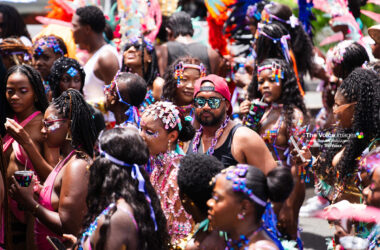THURSDAY was International human rights day and on that occasion, St. Lucia’s most prominent campaigner attorney Mary Francis, drew the nation’s attention to how far away we stood in terms of guaranteeing human rights to all our citizens.
It was a timely warning considering that we were only recently cited by the United States for allegedly unlawful police killings of 12 persons that invoked sanctions against our police force. In recent times too, questions have been raised about the rights of other sections of the community, children, women, gays, even condemned prisoners and especially prisoners on remand.
It is interesting how the question of human rights has gained so much international currency since the second world war. There is hardly an independent country that has not enshrined in its constitution various rights and fundamental freedoms under which its people would live. Governments sign on to human rights conventions, usually with good intentions but all, at some point, find themselves in situations where these sacred assurances are frequently violated. These violations take place even in the very countries that hold themselves up as defenders and champions of the rights of people in other lands.
It is no surprise therefore that Ms. Francis, in her usually blunt statement this week, has concluded that St Lucia has fallen short in many areas in providing human rights for its citizens in terms of inadequate legislation, manpower and support structures. And this is the subject of this editorial today.
One of the most glaring examples of denial of rights in St. Lucia at this time has to do with the large number of persons, especially young persons, who are in jail, awaiting trial for various offences. This is not a new concern. It has been raised repeatedly over the years and the longer it takes to remedy the situation, the greater the numbers of people who are being denied their liberty, or their opportunity to fight for their liberty in a court of law.
The most appalling thing however, is the seeming lack of urgency on the part of the authorities in redressing this very serious indictment on our country and its commitment to ensuring the human rights and fundamental freedoms of all of its people. Day after day, our courts are committing more and more people to languish in our prison on charges which are taking ages to be finally determined.
At one point last year we had 399 persons on remand at Bordelais, including 102 facing charges of murder or manslaughter. Thirty-four of those on remand had been there for five or more years and two for as many as 13 years.
So far all the promises that this very serious blot on our human rights record will be rectified have come to nought. We say so because we see no positive move, anywhere, of any serious commitment to turn this matter around. It is only a question of time before our tardiness in this respect is drawn to the attention of the many international agencies that monitoring the situation and championing the causes of those whose rights are being violated.
We agree with Ms. Francis that St Lucia can do better and must do better because everyone is entitled to be treated with human dignity, without exception. We should not wait until the name of this country is being trashed in the international community as a violator of human rights to begin to right such wrongs.
Ms. Francis made an important point that we now live in an era of globalization which is also applicable to the justice system and the rule of law. It is our hope that the authorities are aware of the new standards of behaviour that are being demanded of states everywhere and begin to live up to their responsibilities in this regard.


![Human rights advocate, Mary Francis. [PHOTO: Stan Bishop]](https://thevoiceslu.com/wp-content/uploads/2015/10/mayyy.jpg)












The first block has been laid with the retirement of madame. I can now see these backlogs being cleared in the next 24 months from april. It’s no longer a statistical issue of conviction rate.
madam, well done is better then well said…….but on the right side for the victims not the criminals.